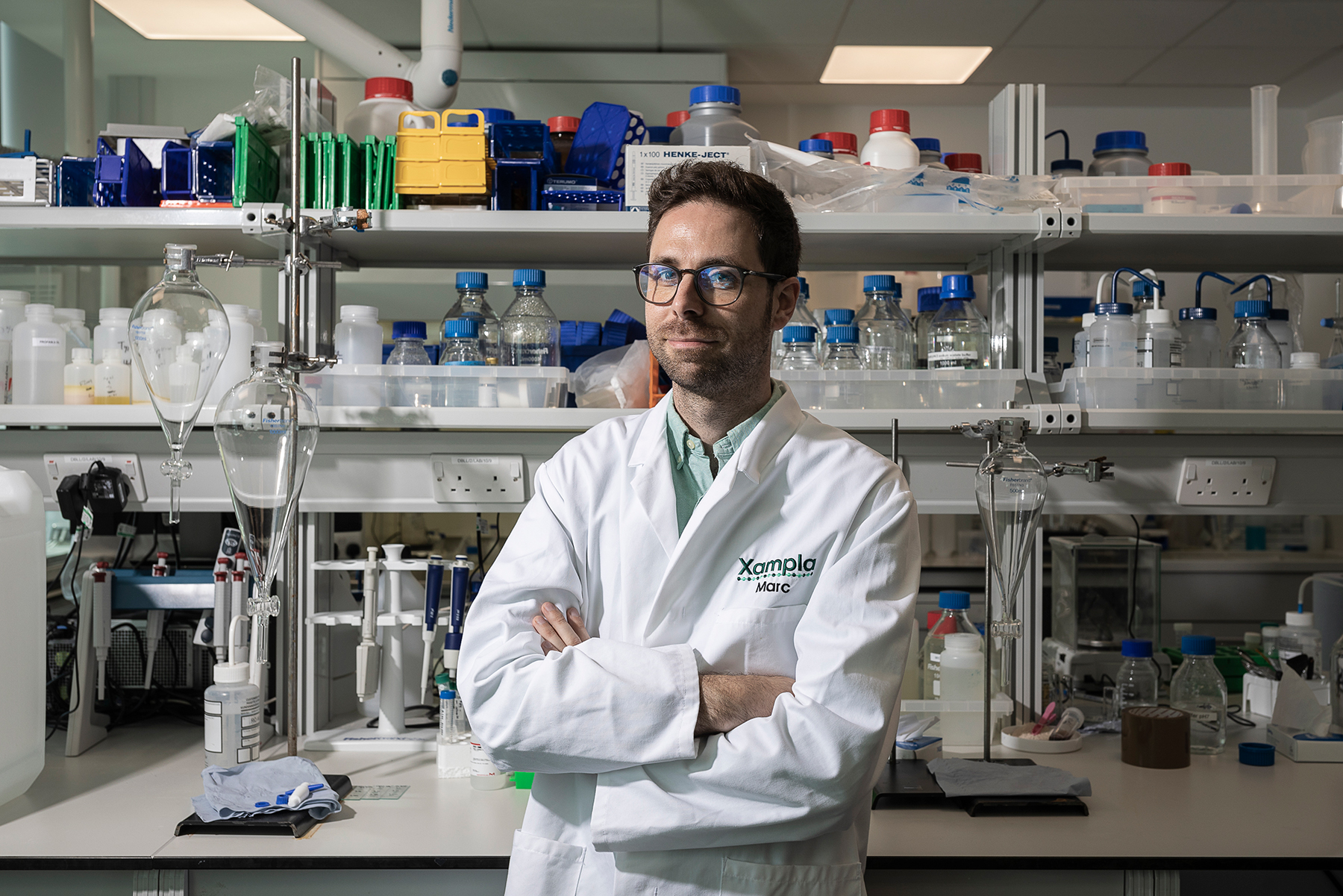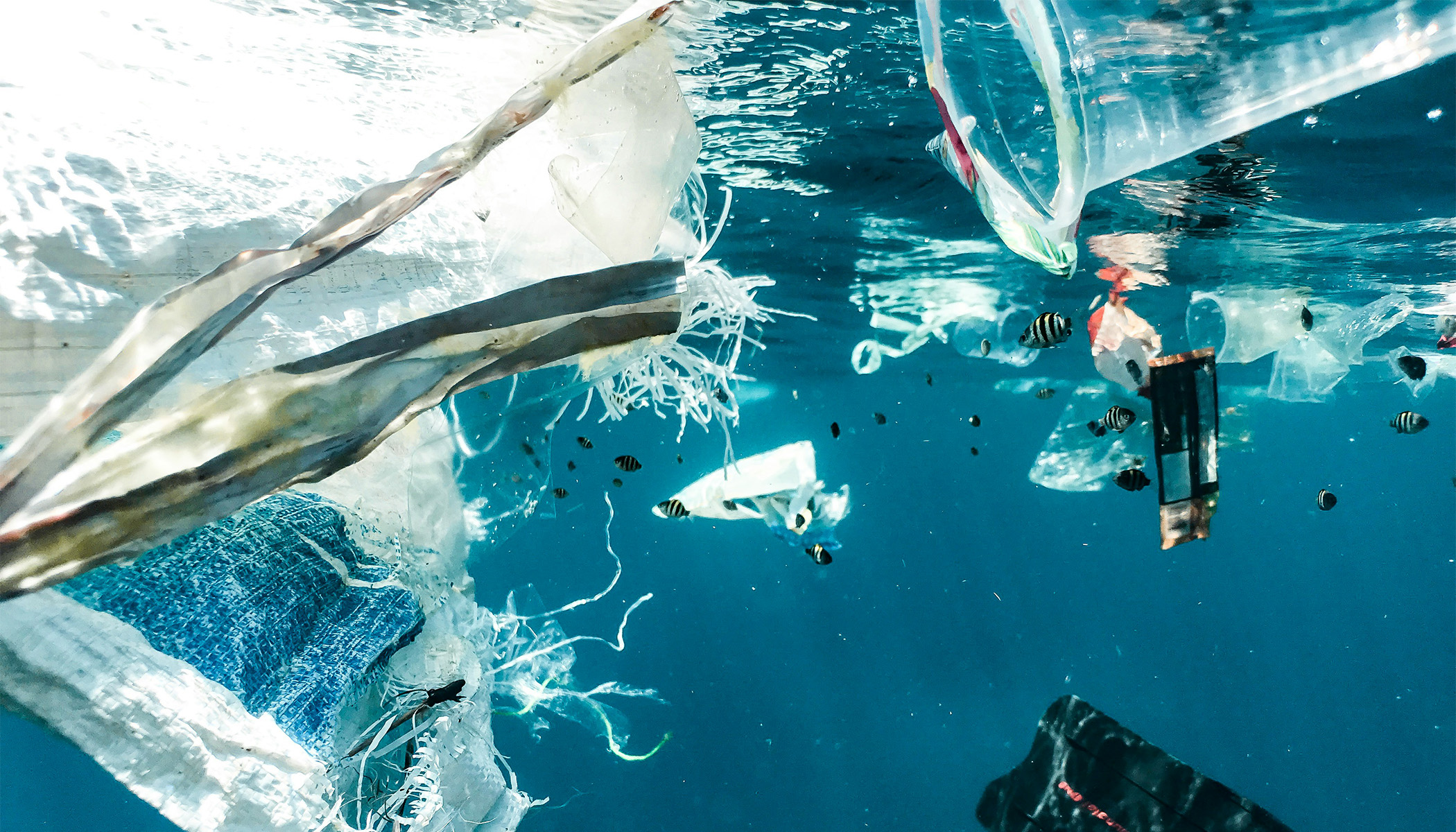Once seen as a bedrock technology of the modern age, the detrimental relationship humanity has with plastics has become all too clear.
Microplastics – and their smaller, more dangerous variant, nanoplastics – have been discovered in every ecosystem on earth, with potentially devastating consequences. Meanwhile, some researchers have suggested the average human may be eating as much as five grams of plastic – equivalent to a credit card – every week.
In the search to replace the most polluting variant of plastics – single-use – Professor Tuomas Knowles of the Yusuf Hamied Department of Chemistry at the University of Cambridge, turned to spiders for inspiration. Knowles, a serial academic entrepreneur, discovered a way that proteins could be spun into strong materials in much the same way web silk is created.

Dr Marc Rodriguez-Garcia, CTO and Co-Founder, Xampla
Originally focused on capsules for delivering therapeutics, the self-assembled protein materials developed by Knowles and his team, soon to be joined by Dr Marc Rodriguez-Garcia, moved into alternatives to single-use plastics with the creation of Xampla in 2018. Robust and biodegradable, Xampla’s products can meet the performance functionality required by customers while also biodegrading harmlessly – even if they end up in landfill or out in the sea.

In 2023, the company doubled down on its vision of a plastic-free future with the launch of Morro™, Xampla’s first consumer brand. Morro™ offers a range of plastic-free materials that brings to market soluble films, such as those used in dishwasher tablets, and an edible film to replace plastic sachets used in food packaging. Using this innovative edible film, Gousto and Xampla partnered to create the world’s first edible stock-cube wrapper made from plants. A direct replacement for plastic with zero waste, Morro™ Edible Film stock cubes sold out within an hour of going on sale.

Xampla's Morro™ materials
Furthermore, Morro™ Micro replaces microplastics in personal care products and Morro™ Coating offers a natural solution to reduce plastic usage and remove forever chemicals from food contact packaging.
Cambridge Enterprise has played a pivotal role in the creation of Xampla. Our technology transfer team supported Xampla’s co-founders in creating an initial leadership team, providing guidance throughout formation, and aiding in securing three patents which underpin Xampla’s technology. Support from the seed funds team has also proved invaluable to Xampla, providing critical funding for initial technology development and opening the door to co-investors like Amadeus Capital Partners, Horizons Ventures and Parkwalk Advisors.
Cambridge Enterprise co-led Xampla’s initial £2m seed round with Amadeus Capital Partner and Horizons Ventures. The round was supported by Sky Ocean Ventures, Marshalls of Cambridge, a number of angel investors and the University of Cambridge Enterprise Fund VI, managed by Parkwalk Advisors. Recently, the company raised an additional £5.6m, bringing its total investment raised to £14m.
The funding has proven critical in fuelling Xampla’s product development and ability to scale. The company has continued to build alliances, such as its partnership with Gousto as well as with many other companies who share its vision, including Britvic and ELEMIS.
The company recently unveiled a strategic agreement with UK-based materials manufacturer 2M to ramp up production of Morro™ products, which will allow Xampla to make its biopolymers at a much greater scale. The ultimate ambition of Xampla is removing the most polluting plastics entirely from supply chains – a vision which would drastically reduce both plastic pollution and reliance on fossil fuels in global trade and commerce.
Xampla is the UK’s first university spin-out to achieve B Corp status as part of the global movement for an inclusive, equitable, and regenerative economy. It is at the forefront of a revolution, offering a beacon of hope for a sustainable future. With its innovative approach to tackling plastic pollution and its commitment to environmental stewardship, Xampla exemplifies the transformative potential of academic research when aligned with entrepreneurial spirit and societal impact.
Image Credits: Xampla





